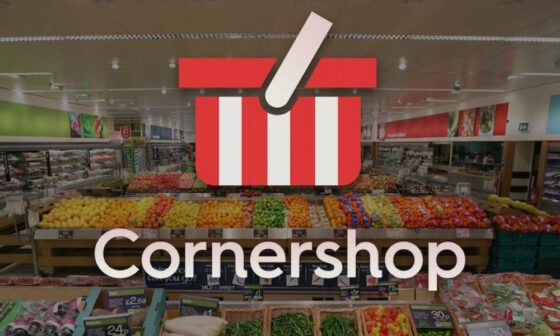Tech startup Nuvocargo is modernizing the logistics industry.
2020, though challenging, was a pivotal year for the global shipping industry with a record-breaking 53 investments made in supply chain tech valued at around $43 billion. International logistics –a traditional industry, yet to be eaten by software– faced new consumer needs and market trends, and unprecedented regulations, presenting a unique opportunity for startups across verticals. The $2 trillion international shipping market is in need of modernization. Alongside logistics tech companies like Flexport, Convoy and Beacon, Nuvocargo is one of the startups leading this historic shift, starting with the biggest trade lane in the world: Mexico-USA.
Is Mexico the new China?
While there is a lot of media focus on US-China trade, according to the Office of the US Trade Representative, Mexico is now the US’ largest goods trading partner with $614.5 billion in total goods traded during 2019. According to industry experts like Peter Zeihan, this trend is set to continue throughout our lifetimes, as the ongoing tensions with China, increased labor costs, political instability, and the long-lasting effects of the pandemic drive more US companies to rethink their supply chains; driving them away from China and closer to home.
Even before the pandemic hit, consulting firm Gartner found that 33% of global supply-chain leaders had either shifted sourcing and manufacturing activities out of China, or planned to do so in the next three years. As the US-China race to be the world’s super power heats up in the next decade, Mexico trade appears as the perfect “hedge” for the US, considering its interest to greatly reduce its dependency on the Asian country.
From offshore to nearshore
The trend of “nearshoring” to Mexico is growing exponentially for US importers. Companies of all sizes are moving their US supply chains closer to home in favor of Latin America, specifically Mexico. The automakers especially should continue to see a big boom and reliance on Mexico as it favors homegrown manufacturing, in particular the Bajio region, which is flush with trucking capacity.
This move south of the border comes with many upsides including cost reductions, more convenient and faster shipping, stricter laws against fraud and theft, as well as logistical efficiencies linked to geographical proximity and cultural similarities. Customers are getting more demanding, and tight COVID-19 restrictions are making urgent shipments that require air freight from China prohibitively expensive.
The recent signing of the new North American Free Trade Agreement USMCA coupled with a more stable Biden administration is likely to improve trade relationships with Mexico as well. An expected increase in US government spending and a policy refocus on middle and lower classes could also prove beneficial to Mexico’s production capabilities, as additional consumption incentives are created. And with the tight grip on China not likely to loosen in the near future, both countries (US/Mexico) could benefit from bringing more manufacturing to North America.
Digital: the new normal
COVID-19 has massively accelerated the adoption of digital tools, forcing the traditional and analog logistics industry to implement technology as its primary way of doing business. In fact, a recent study by McKinsey Digital shows that consumer and business digital adoption has vaulted five years forward in a matter of around eight weeks (as of May 2020)– a breakthrough expected to deepen in the future.
Born and raised in Ecuador, Deepak Chhugani founded Nuvocargo, the first all-in-one software platform for US-Mexico trade, after personally experiencing the pain of cross-border transport via his family’s Latin America international logistics business.
“This is a very complex process that requires expertise and a network across import/export, compliance, and transportation,” he said. “Nuvocargo is helping companies make that digital transformation, to dramatically improve the process, resulting in fewer errors, less human effort, and better service for shippers.”
As Chhugani explained, the industry was hit with a historic US-Mexico trucking northbound/southbound imbalance (from 3:1 to 7:1 ratio) and a price surge, as well as exports saturation at the border that affected regular transit times, resulting in lines as long as 12 km and 8-10 hours of waiting time, causing missed delivery times, fines and/or rescheduled deliveries. Powered by proprietary software solutions, Nuvocargo is tackling these challenges head on by riding the digitalization wave accelerated by the pandemic.
For Juan Sebastian Muñoz, Director of Innovation at Calidra Group, the largest lime producer in Mexico and a Nuvocargo customer, the use of technology is resulting in simpler and more efficient shipping experiences.
“Traditional freight forwarders had archaic systems, and we needed to deal with several different companies to get everything from Point A to Point B. Nuvocargo is the first freight forwarder with a single dashboard to track everything end to end, and a fully bilingual team that can coordinate every detail on both sides of the border. It’s a huge improvement on the old way of doing things.”
As the global landscape continues to change and “passing trends” turn into the new normal, more investors are looking at Latin America for innovative solutions to age-old problems. For Nuvocargo, after generating millions of dollars in revenue since beginning operations in late 2019 and raising $5M+ from Silicon Valley and Mexico investors, as well as growing 25x in 2020 and bringing in new customers during a challenging time for the industry, 2021 is set to be a decisive year on its mission to unlock the potential of people and companies in the region by simplifying trade.


